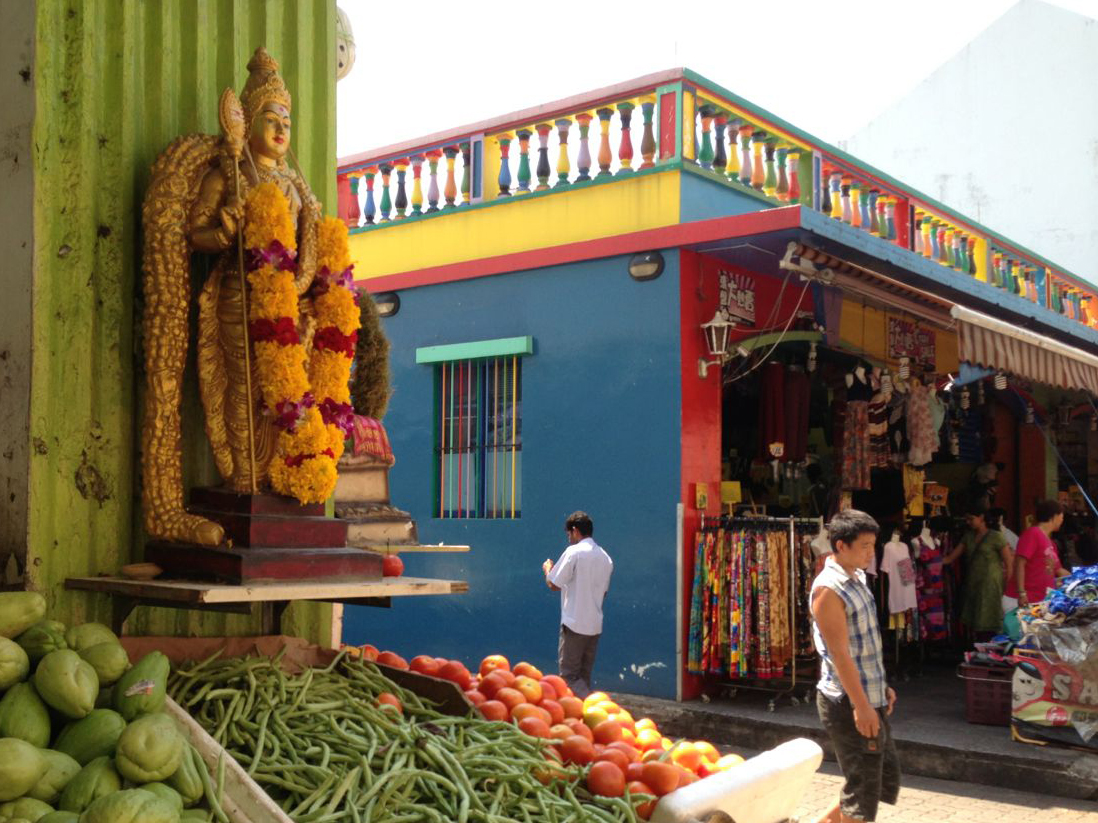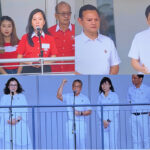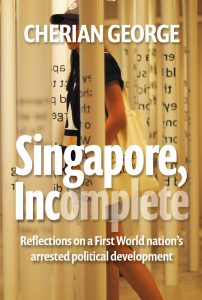INTER-FAITH RELATIONS
Speech at the Community Leaders’ Conference 2010, organised by OnePeople.SG.
I must begin with an apology. I have been introduced with my academic credentials, which may give you the impression that I am an authority on the subject that I will be talking about. In fact, my academic specialisation has little to do with this topic. I will be speaking to you not as an expert, but as a fellow citizen and journalist. I publish a newspaper for children that is dedicated to what we call ‘values-driven journalism’. One of our key missions is the promotion of multi-culturalism. It’s in this context that I have had the opportunity to pay close attention to issues of integration.
As an observer and not an expert, I will share some thoughts about relations among religious communities in Singapore. Let me summarise what I’m going to say in three points before I elaborate on them. First, I believe that Singapore has a healthy environment for inter-faith relations, because we have arrived at a pragmatic set of working principles to manage these relations. Second, however, this formula does not protect us completely from friction; the arrangements that we have devised will continue to come under a certain amount of strain. Third, managing these strains is not just the government’s responsibility; it is everyone’s job. I will try to explain why it is so important that citizens, especially community leaders, take ownership of the inter-faith agenda.
Let me start by introducing you to Sam, a hypothetical Singaporean. There is probably no such thing as an average Singaporean, since we are such a diverse society, but imagine Sam to be representative in many ways. Incidentally, I have chosen the name ‘Sam’ for this character very deliberately. Sam could be the Chinese surname of a Taoist or Buddhist Singaporean. Or maybe Sam is short for Samsuddin, a Malay Muslim. He could be Samynathan, a Hindu. Or a Sikh named Samir Singh. Or Sam could be a short for Samuel, a Christian or Jew, or an agnostic. Of course, Sam could be a woman, Samantha or Samah or Samara. But that could get confusing, so with apologies to the female gender, let’s leave Sam as a man,
with a very beautiful and intelligent wife.
Sam has a religion (I’m not saying which, because what I’ll be talking about could probably refer to any of them), and over the years he has been taking his religion more seriously. He has realised that there is more to life than just material success, and he thinks his religion gives him and his family a moral compass, something higher to live for. Religion has also given Sam an identity and a sense of community, because when he meets up with his fellow believers, he feels comfortable, as if he belongs. Sam believes religion is a very personal matter. His attitude is, ‘live and let live’, and ‘mind your own business’.
So, Sam doesn’t really see the point of inter-faith dialogue. It even makes him feel a bit uncomfortable. He fears that inter-faith projects would open the door to others to pry into his life and try to influence his personal beliefs. Furthermore, Sam realises that different religious groups are not equal in power. Some have more resources or have better connections, or are more aggressive and mobilised; and some groups don’t mind their own business but try to change others. So, even though Sam is not naturally paranoid, he feels slightly threatened by the idea of inter-faith projects. He really would prefer to be left alone to do his own thing. Besides, Sam feels that inter-faith initiatives are a solution without a problem. He doesn’t really see the need for them because Singapore already seems to be managing fine.
And indeed, Singapore’s formula for managing religion has been quite robust. It has the following key pillars. First, we have freedom of religion; everyone can choose his or her own faith. As a result, people feel they can be themselves, and that the state will not discriminate against them based on their beliefs. Second, we are secular, but not in the sense that we regard religion as unimportant or an illegitimate part of public life. Instead, secularism in Singapore means that the state stays separate from religion and keeps a fair and equal distance apart from all religions. Third, the state protects religions from offence, even occasionally using censorship when there’s a danger of words and actions causing hurt. Fourth, there is an effort to encourage mutual respect, through observation of religious festivals in the media and schools, through regular dialogue among religious leaders and, of course, through the work of the Inter-Religious Organisation, OnePeople.sg and other such bodies.
Most Singaporeans recognise our record of inter-religious peace as one of the republic’s shining accomplishments. However, it is also clear that our current state of affairs is not without friction and frustration. We have probably all encountered some of these disputes in our lives, and occasionally they are ugly enough to make it into the national news. I know many Singaporeans who would like to think that the solution is just for everybody to be reasonable, live and let live and mind your own business. I actually don’t think it is so simple. Religion can never be totally privatised.
Let’s take the example of our hypothetical friend, Sam. Sam wants to mind his own business, but he cannot live in a bubble. He wants to bring up his children according to his religious values and he can control his environment at home (when the TV and computer are off) but outside and on the media, there are influences from people with different values, and he is not happy about all of them. His children are influenced by what they see and hear in school, on television, in shopping malls and so on. So what happens in the wider society affects his ability to raise his kids according to the values that he believes in. He relies on public space and public resources – the media, schools and so on – and these are vehicles for values that affect his family.
Furthermore, religious rituals and practices can never be completely confined to the grounds of one’s place of worship or home: they will spill out into the streets, void decks, parks and even work places, entering the consciousness of others and sometimes inconveniencing them or making them feel uneasy. It is difficult to resolve some of these disputes, because the resolution may involve adjustments on both sides. One may need to be considerate, while the other may need to be more tolerant. It’s easy to say things like ‘let’s meet half-way’, but in practical terms where is half-way? There is no formula for these things.
I think Singaporeans can do more to create a healthy environment for Sam and others like him to live. For too long, we have left it to government to handle such matters, perhaps because we think it’s something too sensitive and we’d better leave it to the authorities, or perhaps because it is just easier to be lazy. The problem with this vertical approach, reaching up to higher authorities (I mean government, not god), is that it doesn’t do much for building horizontal trust, that is, trust between citizens across religious divides.
Horizontal trust is important, because that is what helps us put things in perspective when we face provocations. If you think about it, most of the ugly incidents and disputes that have a religious dimension are not, by themselves, large or threatening. Religious insults, a blasphemous work of fiction, even the very sensitive issue of religious conversion – each act by itself is not powerful enough to do damage. And, these are almost always exceptions, and not the rule.
However, mistrust acts like a multiplier. We have a very human disagreement with another individual, and suddenly we see him as a representative of all that we fear in the other, and we see ourselves as having to stand up for our entire religious community. A relatively minor and isolated incident grows in our minds and plays on our fears; we then see them as symptoms of a much bigger threat and we treat each incident as if it were a skirmish in a battle that is part of a great war.
Usually, when we face provocative words, the text by itself is not explosive. It is the context of fear and suspicion that multiplies the effect of the words. We cannot control the text. But we can influence the context. Build horizontal trust, and our society will become more resilient against the inevitable frictions and frustrations of living among people of different cultures.
This is why inter-faith efforts are so important. Although we want to keep our religious lives personal and private, we must also cultivate the public space, making it an environment that is tolerant and hospitable towards differences. Advocates of inter-faith work say that it’s not about trying to reconcile differences in theology or doctrine. It’s not about confronting one another. It’s about standing side by side, and cooperating in joint projects such as community work.
Each of us has multiple identities. We are simultaneously people of faith, and family members, and citizens and so on. Inter-faith projects to me are simply an opportunity to activate those parts of our identity that we share with people of other religions. We may disagree about religion, but we can agree that there are certain social problems in our community that needs fixing, so why not work together to solve them. We can do so as individuals, but it is even more powerful when religious organisations come together. The symbolic effect of seeing religious leaders come together is hugely important. In doing so, we won’t just address real social needs, we will also build the horizontal trust that protects our public life in Singapore as a place where people of all faiths can continue to feel at home.







Comments are closed.